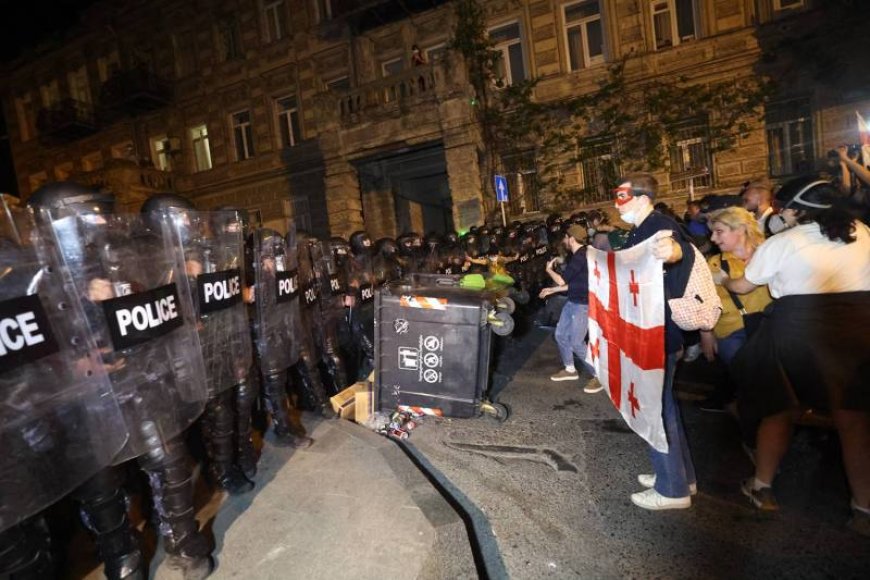US-Georgia Relations Strained Over "Foreign Agents" Law
The United States has once again highlighted significant political rifts with Georgia following the enactment of the controversial "Foreign Agents" law...........


The United States has once again highlighted significant political rifts with Georgia following the enactment of the controversial "Foreign Agents" law by the Georgian government. This stance was reiterated on Wednesday by a State Department representative, signaling deepening tensions between the two nations.
Matthew Miller, the US State Department spokesperson, addressed the matter during a press briefing. Responding to an inquiry from the Turan news agency, Miller stated, "Two weeks ago, we announced that we would review our relationship in light of the law passed by Georgia, and there are indeed serious political differences."
The legislation, which restricts the activities of entities deemed to be influenced by foreign governments, has been met with strong opposition from Washington. The US views the law as a direct move to curtail the operations of Western organizations and NGOs within Georgia. In response, the US has suspended a substantial aid package and is considering further punitive measures.
"Our aid to Georgia, approximately $390 million, is currently under review," Miller noted. "Additionally, we are evaluating the potential implementation of sanctions and visa restrictions, which we announced less than two weeks ago. More details will follow, but no further announcements are ready today."
This legislative move by the Georgian government has been interpreted by many as a pushback against perceived Western interference. The response from the US and Europe has been marked by increased diplomatic pressure and threats of sanctions, escalating the geopolitical standoff.
In a sharp rebuke, leaders of Georgia's ruling Georgian Dream party, including the Prime Minister, have intensified their criticism of the US. They condemned recent US congressional hearings on Georgia, labeling Georgian witnesses who testified as "traitors."
The strain in US-Georgia relations was further exemplified last month when US Secretary of State Antony Blinken announced that individuals obstructing the activities of Western entities in Georgia, along with their close relatives, would face American visa bans.
The unfolding situation underscores the widening gap between Georgia and its Western allies, raising concerns about the future trajectory of the country's foreign policy and its relationship with the United States.
May 13, 2025 339
May 12, 2025 557
May 12, 2025 520
May 12, 2025 453
May 12, 2025 473
Apr 15, 2023 27.2k
Feb 15, 2023 26.7k
Apr 15, 2023 25k
Mar 31, 2025 4.5k
Mar 11, 2025 3.3k
This site uses cookies. By continuing to browse the site you are agreeing to our use of cookies.


